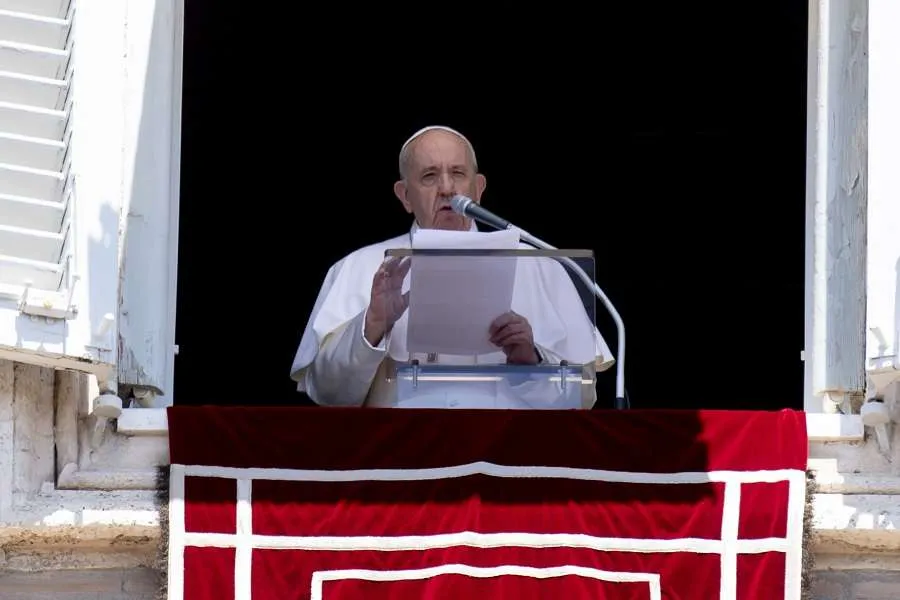“At the prospect that Jesus may fail and die on the cross, Peter himself resists and says to Him: ‘God forbid, Lord! This shall never happen to you!’ (v. 22),” the pope recounted. “He believes in Jesus; he wants to follow Him, but does not accept that His glory will pass through the Passion.”
He said “for Peter and the other disciples – but for us too! – the cross is something uncomfortable, a ‘scandal,’” adding that for Jesus, the real “scandal” would be to escape the cross and avoid the Father’s will, “the mission that the Father has entrusted to Him for our salvation.”
According to Pope Francis, “for this reason, Jesus responds to Peter: ‘Get behind me, Satan! You are a scandal to me; for you are not on the side of God, but of men.’”
In the Gospel, Jesus then addresses everyone, telling them that to be his disciple he must “deny himself and take up his cross and follow me,” the pope continued.
He pointed out that “ten minutes earlier” in the Gospel, Jesus had praised Peter and had promised him to be the “rock” on which he founded his Church. Next, he’s calling him “Satan.”
“How can this be understood? It happens to all of us! In moments of devotion, fervor, good will, closeness to our neighbor, we look at Jesus and go forward; but in the moments when the cross comes, we flee,” he stated.
“The devil, Satan – as Jesus says to Peter – tempts us,” he added. “It is of the bad spirit, it is of the devil to distance ourselves from the cross, from the cross of Jesus.”
Pope Francis described the two attitudes the Christian disciple is called to have: to renounce oneself, meaning to convert, and to take up one’s cross.
“It is not just a matter of bearing the daily tribulations with patience, but of bearing with faith and responsibility that part of the effort and that part of suffering that the struggle against evil entails,” he said.
“Thus the task of ‘taking up the cross’ becomes participating with Christ in the salvation of the world,” he said. “Considering this, we allow the cross hanging on the wall at home, or that little one that we wear around our neck, to be a sign of our wish to be united with Christ in lovingly serving our brothers and sisters, especially the least and most fragile.”








